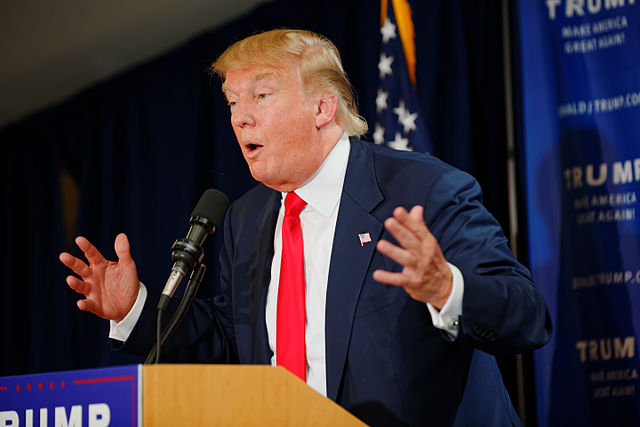by Mark N. Katz
No matter how it starts, once a U.S. military intervention has begun, it has usually been liberals who have questioned it and called for withdrawal while conservatives have backed it and sought to keep it going. Now, though, it is the conservative President Trump who has announced that the U.S. is withdrawing all its ground forces from Syria. His justification for doing so is that their purpose—the defeat of ISIS—has now been achieved, and so U.S. forces are no longer needed there. Numerous observers, though, have noted that while ISIS may have been greatly weakened, it has not been defeated and may even be growing stronger again—something that the U.S. withdrawal will only encourage.
Why, then, has Trump decided to withdraw U.S. troops from Syria? Presumably, he is not doing so due to pressure from his “base” within the U.S. electorate, which would probably support with equal enthusiasm a decision by him (and perhaps only him) either to remain in or withdraw from Syria. And just as Nixon’s withdrawal of U.S. forces from Indochina in early 1973 did not cause Democrats critical of the war to drop their inquiry into the Watergate scandal, Trump’s announced withdrawal from Syria does not seem likely to result in the incoming Democratic House majority going easy on him regarding his 2016 campaign’s possible collusion with Russia and many other issues now.
So if Trump is not withdrawing from Syria for domestic political reasons, perhaps his motives relate to foreign policy concerns. Previously, though, Trump administration officials indicated that U.S. forces would stay in Syria in order to counter the rise of Iranian influence there, and that the U.S. would only leave when Iran did. But now the U.S. is withdrawing from Syria without a corresponding Iranian withdrawal, and Iran and its allies will have a freer hand in Syria as a result. This is something that neither the Trump administration nor its Israeli and Saudi allies want.
Without a clear American domestic political imperative or foreign policy rationale, Trump’s decision to withdraw from Syria is confusing. But considering that Trump’s decision-making often appears to be inscrutable, perhaps focusing on why he made this decision is the wrong question to address. It is more important instead to try to determine what the impact of his decision—whether he intends it or not—might be.
On the negative side—even from the Trump administration’s viewpoint—the U.S. withdrawal, as noted earlier, may allow both ISIS on the one hand and Iran along with Hezbollah and its other Shi’a militia allies on the other to all grow stronger. In addition, the Syrian Kurdish forces with whom U.S. forces have fought with against ISIS will now become more vulnerable to attack from several parties, including Turkey. Further, to the extent that it does embolden Iran and its allies to take actions which Israel sees as threatening, the U.S. withdrawal from Syria may greatly increase the prospects for an Israeli-Iranian conflict.
There may, though, also be a positive side. The U.S. withdrawal from Syria—and consequent reduction in its ability to support Syrian Kurdish forces—may help improve U.S. relations with Turkey, which sees Syrian (as well as other) Kurds as implacable enemies. Similarly, while it has often been noted that the Russian, Iranian, and Turkish governments have differing aims in Syria, the American military presence in Syria has led them all to focus on their differences with the U.S. there and not those with one another. With the U.S. leaving, the differences between them may now come to the fore.
And these differences are considerable. Turkey and Iran support opposing forces in Syria, and may not agree on how to divide Syria into zones of influence. While Iran and Hezbollah are in Syria partly to pursue anti-Israeli aims, Russia has good relations with the Jewish state which it seeks to maintain. Moscow may be hard pressed to prevent the escalation of Israeli-Iranian conflict there, which would only show the limits of its own influence in Syria. Finally, with the U.S. out of Syria, Russia will be the only power from outside the Middle East maintaining forces there. With U.S. forces gone, ISIS and other jihadists may well decide to focus their attention on the Russian forces that remain.
The U.S. withdrawal from Syria, then, may not lead to increased influence for America’s adversaries there, but to considerable difficulties for them instead. But even if American foreign policy benefits from such developments, the Syrian people will not as they will suffer from conflict between opposing forces inside their country. The current U.S. military presence in Syria, though, has not saved them from this.






A fictional story based on a ‘Trumpian’ tweet.